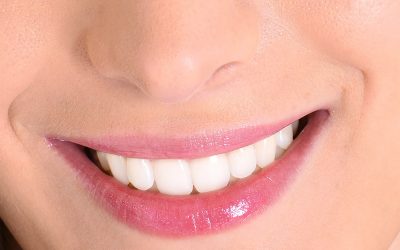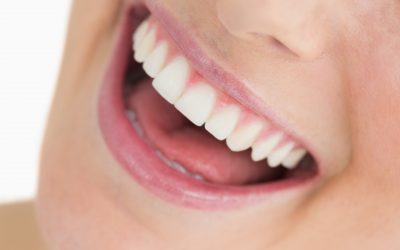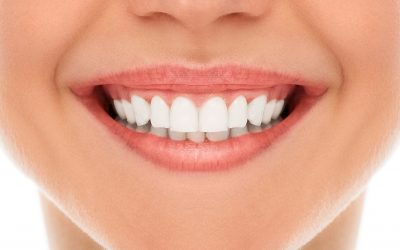Having an overbite, also known as “buck teeth,” can be a source of embarrassed for many individuals, leading them to feel uncomfortable and insecure in social situations. This common malocclusion occurs when the upper teeth protrude over the lower teeth, causing a visible misalignment and an irregular bite pattern. While genetics can play a role in developing overbite teeth, other factors such as thumb-sucking, tongue-thrusting, and improper swallowing can also contribute to this dental condition. Fortunately, the good news is that overbite teeth are treatable through a variety of methods like braces, orthodontic appliances, and jaw surgery. Explore each approach’s potential benefits and drawbacks, helping you decide on the best treatment plan for your specific needs.
Take control of your dental health!
Causes of Overbite
Understanding the underlying causes of overbite is essential in order to find an effective solution. Overbite can be caused by a combination of factors, including genetics, thumb-sucking during childhood, or abnormal growth of the jaw or teeth. Inherited traits can play a significant role in the development of buck teeth, with some individuals inheriting misaligned teeth or a smaller jaw from their parents. Thumb-sucking or pacifier use beyond a certain age can also put pressure on the front teeth and cause them to protrude. Additionally, the size and shape of the jaw or teeth can be abnormal due to conditions such as cleft palate or tumor growth, leading to an overbite. It is important to identify the specific cause of buck teeth in order to determine the most effective treatment plan.
Types of Overbite Teeth
Overbite can be mild, moderate, or severe, depending on the amount of protrusion. There are two main types of overbite teeth: vertical and horizontal. In a vertical overbite, the front teeth overlap the lower teeth significantly, causing an elongated appearance to the face. A horizontal overbite, on the other hand, causes the upper teeth to protrude forward, giving a buck-toothed appearance. Both types of overbite can cause speech impediments, jaw pain, and difficulty chewing. However, with proper treatment, overbite teeth can be corrected, leading to an improved smile and a more comfortable bite.
Overbite Issues & Treatment Options
Overbite can cause a variety of issues including difficulty eating, speaking, and even breathing in some severe cases. Fortunately, there are many options available to correct overbite teeth, ranging from braces to surgical procedures. One of the most common treatment options is traditional braces, which use a combination of brackets and wires to gradually shift teeth into proper alignment. Invisalign clear aligners are also an option for correcting mild to moderate cases of overbite teeth. If the overbite is more severe, jaw surgery may be recommended alongside orthodontic treatment to properly align the teeth and jaw. Ultimately, the best treatment option for correcting overbite teeth will depend on the individual case, and should be evaluated and recommended by a trained dental professional.
Choosing the Right Treatment
Fixing an overbite or buck teeth requires careful consideration and assessment of the degree of misalignment. For some individuals, minor overbites may be corrected with braces or clear aligners, while others may require more extensive treatment methods such as surgery. It is important to get some professional advise to find out what treatment will be most effective for your specific needs. They can evaluate the severity of your overbite and determine if traditional braces, clear aligners, or surgery will be required to restore your dental health. Your dentist or orthodontist can also provide you with a treatment plan and an estimated timeline for achieving your desired results. It is important to choose a treatment approach that is appropriate for you and your individual case, and to work closely with your dental team throughout the process for the best possible outcome.
🦷 Overcome Insecurity with a Perfect Smile. 🦷 Fix Your Overbite and Feel Confident Again! 🤩
Can Invisalign fix Buck teeth?
Invisalign is a orthodontic treatment that uses clear, removable aligners to gradually shift teeth into their proper positions. The question of whether Invisalign can correct buck teeth, or overbite, is a common concern among many dental patients. The good news is that Invisalign can indeed fix buck teeth in many cases. In fact, Invisalign has been successful in treating a wide range of orthodontic issues, including overbite. However, the severity of the overbite will determine the extent to which Invisalign can be effective. In some cases, traditional braces or other orthodontic treatments may be necessary to fully correct the overbite. Therefore, it is important to consult with a trained orthodontist to determine the best course of treatment for your specific situation.
In conclusion, fixing an overbite can be done through various ways depending on the severity and cause of the condition. Seeking a dentist or orthodontist’s help can make the process easier, with options including braces, aligners, and surgery. It’s vital to consider the potential risks and benefits of each method and consult a professional to decide the best course of action. Taking the steps needed to address an overbite can lead to improved oral health, better self-esteem, and a more confident smile.




